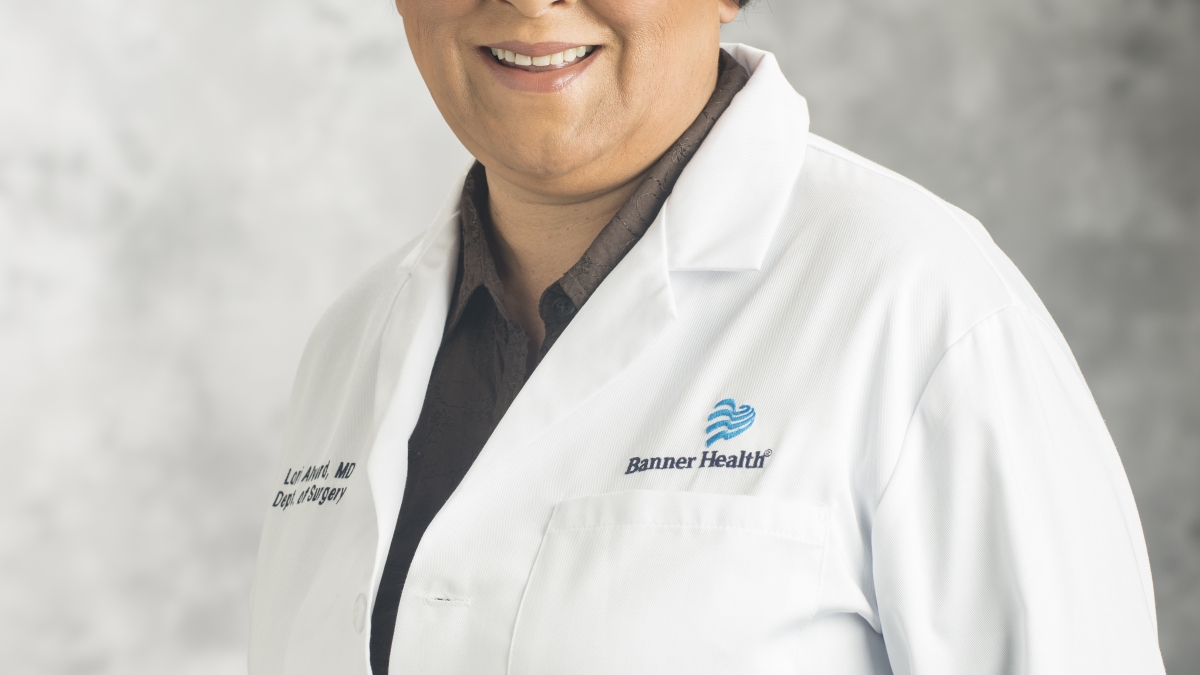Navajo surgeon who combines traditional healing, Western medicine to speak at ASU lecture

"Ceremonies work at multiple levels, but primarily they heal the mind, which helps to heal the body,” says Lori Arviso Alvord, the first Navajo woman to be board-certified in surgery. She will present “The Healing Properties of Navajo Ceremonies” at 7 p.m. Oct. 22 at the Heard Museum in Phoenix. Photo courtesy Lori Arviso Alvord
The first Navajo woman to be board-certified in surgery, Lori Arviso Alvord, will deliver Arizona State University’s Simon Ortiz and Labriola Center Lecture on Indigenous Land, Culture and Community on Thursday, Oct. 22, at the Heard Museum in Phoenix.
The lecture, titled, "The Healing Properties of Navajo Ceremonies,” will be at 7 p.m. in the Steele Auditorium at the museum, 2301 N. Central Ave. Admission is free, and the lecture is open to the public.
"Ceremonies work at multiple levels, but primarily they heal the mind, which helps to heal the body,” said Arviso Alvord, M.D., chief of surgical services and a practicing general surgeon at Banner Health Page Hospital in Page, Arizona, near the Utah border. “Chant, song, prayer, and guided imagery are used, in an elaborate form of mind-body medicine.”
Not only do these ceremonies help heal their human participants, Arviso Alvord argues that they also encourage the health of the planet.
“Subsistence living and environmental sustainability principles are also found in ceremony teachings,” she said. “[They] are examples of how interconnection can promote sustainability theory and teach humans a way of living that honors and protects our natural world."
Arviso Alvord also holds an appointment as associate faculty at Johns Hopkins Bloomberg School of Public Health, Center for American Indian Health in Baltimore, Maryland.
Her memoir, “The Scalpel and the Silver Bear” (Bantam, 1999), tells the story of her journey from the reservation to the operating room and of her work to combine Navajo philosophies of healing with Western medicine. The book is available on Amazon.com and may be purchased before 5 p.m. at the Heard Museum Shop on the day of the event.
Raised in Crownpoint, New Mexico, Arviso Alvord is a member the Tsinnajinnie (Ponderosa Pine) and Ashi’hii’ Dine’ (Salt) clans.
She earned her undergraduate degree from Dartmouth College in 1979, received her doctorate of medicine at Stanford University School of Medicine in 1985, and completed her residency in general surgery at Stanford University Hospital. In addition to other medical practice and teaching positions, she served as a member of the National Advisory Council of the NIH Center for Complementary and Alternative Medicine from 2008 to 2010. Her research has focused on surgical outcomes and health disparities in Native American populations. Additional interests include Native American health, Native American healing, integrative medicine, and the creation of healing environments.
Arviso Alvord has been awarded honorary degrees from Albany Medical College, Drexel University College of Medicine and Pine Manor College, and she has been a commencement speaker at five medical schools. She is featured in the National Library of Medicine exhibit, “Changing the Face of Medicine,” honoring pioneering women physicians over the past 150 years.
The semi-annual lecture series, which focuses on a variety of topics with an Indigenous American perspective, is organized by Regents’ Professor of English and American Indian Studies Simon Ortiz (Acoma Pueblo), in conjunction with the ASU Labriola National American Indian Data Center and the world-renowned Heard Museum of Phoenix.
Other ASU sponsors include the American Indian Policy Institute; American Indian Studies Program; Department of English; and School of Historical, Philosophical, and Religious Studies (all units in the College of Liberal Arts and Sciences); as well as the Indian Legal Program in the Sandra Day O'Connor College of Law; School of Art in the Herberger Institute for Design and the Arts; and Women and Gender Studies in the School of Social Transformation.
More Health and medicine

'Incredible milestone': ASU, city of Phoenix announce location for ASU Health headquarters
Citing the need for a “new way” of doing things, Arizona State University President Michael Crow said that the headquarters for…

Have a health question? This newsletter is for you
You sprain a knee while playing basketball. Your stomach hurts all the time. You keep getting bad headaches.What’s the first…

Spring clean your social life
Spring: a season of growth, warmer weather and perhaps a case of the sniffles. But as much as the flowers are budding and…

